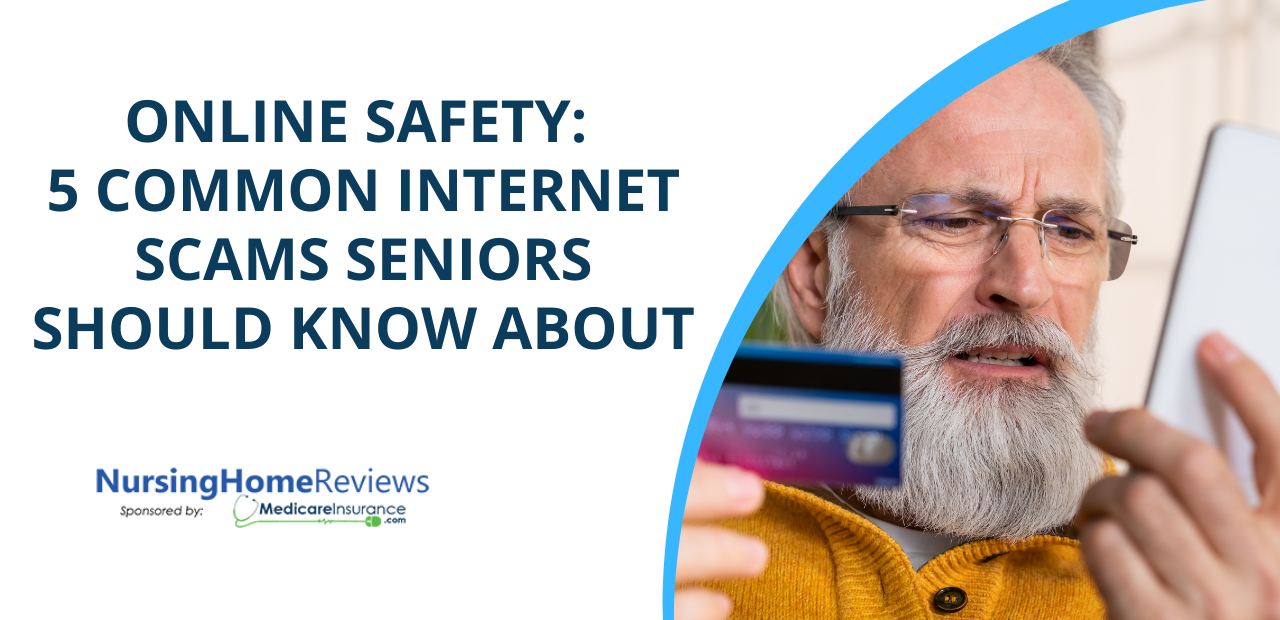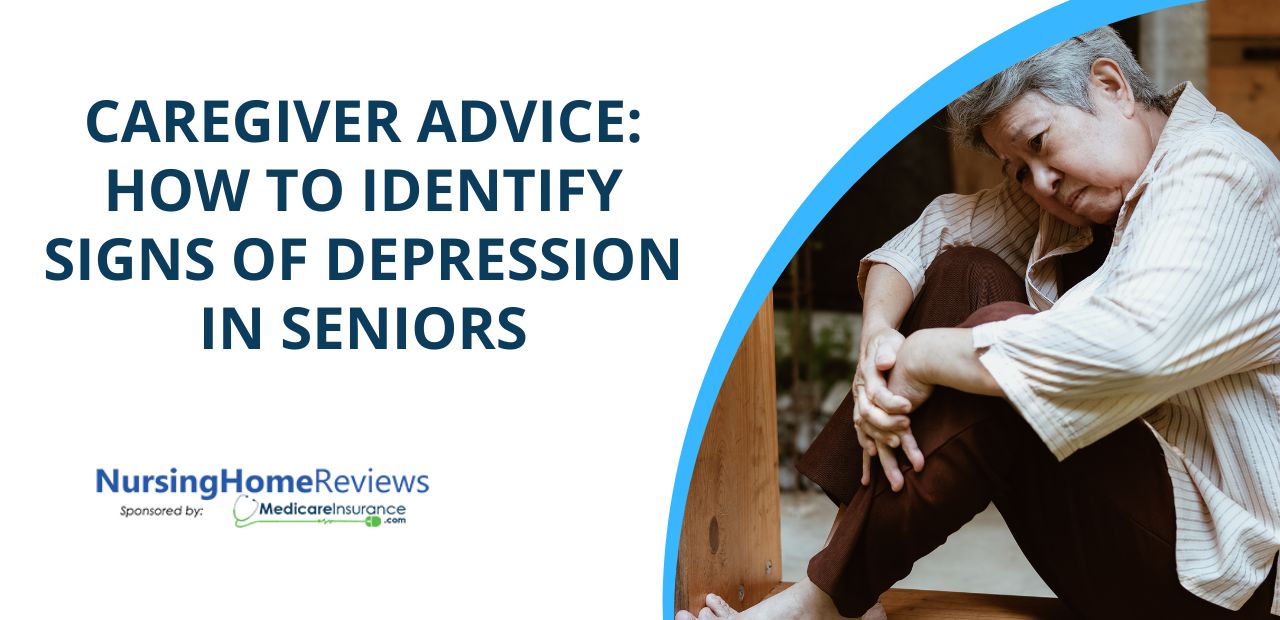
Even the Most Tech-Savvy Seniors Are Vulnerable to Common Internet Scams
You’d like to believe you wouldn’t fall for one of them. You tell yourself that you know how to recognize a scam when you see it. You know you’re well-versed in online safety, and you know how to dodge online scams and elder fraud.
Then the unthinkable happens. You don’t know how, but your information has been compromised by one of many internet scams. You’re afraid, unaware of what’s going to happen next.
If this situation sounds familiar to you, it’s because it’s an everyday occurrence that affects thousands of seniors all across the country. Common internet scams that were once easy to spot have grown more sophisticated. Today’s internet scams are far more convincing, making elder fraud and abuse more of a threat than ever.
You can be the most tech-savvy senior around, super-knowledgeable in the practice of online safety, yet still be an easy mark for common internet scams. In this article, we’re going to help you identify 5 of the most common internet scams you should know about. We’ll also teach you how to recognize a scam.

Medicare Scams
Let’s say that you either have a Medicare plan, or you’re eligible to enroll in one. One day, you get an email that looks like it comes from the Social Security Administration.
“Good news! Your Medicare benefits are ready and waiting for you. Please send us:
- Your home address
- Your Social Security Number
- A valid credit card number
- Your phone number
Once we receive your information, we’ll be able to ship your Medicare card ASAP.”
Or, you get one that looks like this:
“Hello. This is a courtesy email from Hemms and Hawes Insurance. Your last payment failed and your Medicare Advantage plan is about to be canceled. You can stop this by calleing* to give us your Social Security Number and a** updated credit card number to save your plan. “
Sometimes they look official, and sometimes they look like they were sent from someone’s personal email. In any case, they’re designed to typically make you think one of three things:
- You can enroll in Medicare at any time
- Your Medicare plan needs to be renewed
- You’re about to lose your Medicare plan for whatever reason
As a result of one of these three things, you’ll need to call and give CMS or the insurance carrier sensitive information to enroll in or keep your plan. This is the modern version of the Medicare scam. It’s one of the most common internet scams around, and it’s very easy to fall for if you aren’t familiar with the rules and regulations of Medicare.
Just like insurance agents will never call you out of the blue to sell you a Medicare plan, they won’t send you a cold email for the same purpose. Not every senior knows this, though, which makes the Medicare scam one of the most believable scams to affect seniors.
To avoid falling prey to this despicable form of elder fraud, here’s how to recognize the scam. Remember that absolutely under no circumstances will an insurance agent email you to get information meant to enroll you in Medicare, or to save your Medicare plan. The fact that they’re even emailing you, and you aren’t calling them, is a sign that the scammers are trying to defraud you.
When you get these emails, save them in some way. Most email systems have an “Archives” or “Personal” folder where you can save messages. You can also print them out to have physical copies on hand. This is a good idea, because you may need those in the future.
If the scammers directly ask you for money, for personal information, or threaten to cancel your health benefits if you don’t share personal details, call 1-800-MEDICARE (1-800-633-4227) or visit Medicare.gov to report what’s happened. If you have a Medicare Advantage plan and you receive such an email, find one of the following to call the spoofed carrier and verify the communication:
- An account statement
- A number from the phone book
- The carrier’s official website
By taking these steps, you can save yourself a lot of heartache, trouble, and financial ruin.
*One good way to spot these scams? The emails are riddled with spelling errors.
**They’re riddled with grammatical errors, too. Scanning “official” emails for spelling and grammatical errors is a great way to practice online safety.
Find a senior living facility that’ll teach you how to protect yourself against internet scams.
Start your search today.

Phishing Scams
Phishing scams are probably the most common internet scams you’ll find. These nefarious online scams have been around since the dawn of mainstream consumer email. They aren’t always particularly targeted toward seniors, but scammers certainly feel that seniors are great marks for these types of internet scams.
These internet scams work very much the same way as the Medicare scam does. Scammers will send emails pretending to be an institution that you commonly deal with to try and get your personal information. They often send emails posing as:
- Your bank
- Financial institutions where you may hold other accounts, such as investment accounts
- Antivirus software providers
- Your personal email account provider
Many of these scammers even try to go the extra mile by utilizing company logos and actual names of company associates. It’s their belief that, if they can convince you of their legitimacy, you’ll click the link they provide to “update” your information. That link will actually take you to a false landing page, at which point malicious software (Malware) is downloaded on your computer to steal your info.
If these thieves are so convincing, you may think, how am I supposed to recognize a phishing scam? Here are a few tell-tale signs.
The easiest way to recognize a phishing scam is in the email itself. While things may look on the up and up, it’s important to note that none of the companies above will send you emails with links to update your personal information. They may send reminders, but those reminders will encourage you to visit their official websites and sign in to your profile to update important information.
Also, go with your own personal gut instinct. It’s easy to doubt anything you see on the internet anymore, but phishing scams create their own specific type of doubt. There are other giveaways, such as spelling and grammatical errors, that tip a scammer’s hand.
If you feel uneasy about an email, never respond or click links. Delete it or report it, but never buy into it.

Variations on the “Fake Accident Ploy”
Scammers who commit elder fraud know the value of playing on emotions. The most common way to put a fake accident ploy into motion is for a scammer to call to deliver bad news about a loved one. This phone scam has quickly become a very common internet scam, and it ratchets up the fear ten-fold.
Fake accident ploys are easy to recognize because they always use the same few tropes to try and get you to act. Some of the tropes that fake accident ploys often employ are:
- A “medical professional” notifies you that a loved one has been in an accident
- A “police officer” notifies you that a loved one has been arrested
- A “criminal” notifies you that they are holding a loved one hostage
The endgame is always to get money to remove the severity of the situation. For instance, the “medical professional” may tell you that your loved one only has hours to live, and they need money for medical assistance that’ll help them survive. The “police officer” notifies you that paying bail for your loved one within 24 hours will erase all charges. The “criminal” warns that something bad will happen to your loved one if you don’t pay ransom in a specific amount of time.
The email will also have detailed instructions on how to send the money, or they may include a phishing link. The “medical professional”, for example, may link you to a fake GoFundMe account. The other two will ask you to email them your banking info, or have you call them to give it to them.
Take the emotional aspect out of it, and it’s very easy to recognize this scam. If you’re feeling concerned, call to check on the loved one who has seemingly been affected. It’s often a grandchild, or it could even be your grown adult child. Hearing their voice and knowing that they are actually okay can help ground you in the moment, and can keep the scam from taking hold.
Of course, removing the emotional aspect is hard. It’s scary to get a message informing you that something has happened to someone you love. Remember, though, that no medical professional or police officer will ask you for money to help or bail out a loved one through email. Either party will call to let you know what’s going on, and then will give you further detail once you arrive at the hospital or police station.
Out of the three, the “hostage situation” ploy is probably the most believable. You must consider, though, that such a criminal won’t want to send communication that can be traced, and email is easily traceable. This is the situation in which you’d want to give your loved one a call, as, once again, hearing from them can ground you in the reality that you’re dealing with a scammer intent on committing elder fraud.

Social Security Spoofing Scams
This common internet scam isn’t much different from the Medicare scam. Much like its counterpart, it’s the messaging that makes the Social Security Spoof easy to recognize as a scam.
You’ll recognize this scam right off the bat, as they’ll try to inform you that your Social Security number has either been compromised or suspended. In order to reinstate your number, you’ll need to email or call a spoofed Social Security Administration (SSA) number to confirm it.
If you don’t, of course, the scammer maintains that your number will be revoked. You will essentially just vanish. Or, you know, something like that.
For one, the SSA only contacts you if you request them to do so. For another, your Social Security number absolutely cannot be revoked or suspended. SSA officials will also never threaten you to get your personal information.

Catfishing
Advances in the online atmosphere have made it easier than ever for scammers to prey on the loneliness of seniors. The need to connect and feel loved has made catfishing one of the most common internet scams affecting seniors today.
This online scam perpetuates elder fraud through social media more than it does conventional email. If you’re active on social media, odds are good that you’ll be contacted by a catfish at some point. These fraudsters are particularly dangerous because they take extra pains to be as convincing as possible.
Catfishing online scams start innocently enough. You get a friend request or a direct message from someone you’ve never met before asking to connect. Not thinking anything of it, you add this “friend” as a new connection.
If you’re single or widowed, catfish scammers prey on this by being overly flirtatious and complimentary. Otherwise, they convince you that they were simply seeking an interesting new friend. Eventually, they begin asking for money, or access to it. However, when you ask to meet up or become close, they cancel on you with little to no good reason.
For those of you who are unsure if you could recognize a catfish, here’s how to best recognize a catfishing scam.
In most cases, catfish either have no profile photo at all, or profile photos that vary widely in look and style to represent themselves. The information they offer about themselves tilts between extremes: they offer little to no information, or they weave wild tales about their lives that seem overexaggerated.
Once they feel they have you hooked, a catfish scammer will work to separate you from your support system. If you mention that family or friends are thinking that a catfish scammer is out to hurt you in any way, the catfish scammer plays into your fears of not being taken seriously or being viewed as senile. Once they feel that they have you isolated, they begin asking for money and assets.
They’ll most commonly ask for money for these reasons:
- Traveling to meet you
- Paying medical expenses
- Keeping up with utilities
- Helping a loved one
- Buying you a gift
Of course, these things never seem to come to fruition after you’ve given the money. When confronted, a catfish scammer will make excuses, accuse you of not trusting them, and eventually cut all contact and ties without warning.
To avoid being hooked by a catfish scammer, be wary of new friends without photos or who are wary of introducing themselves in some meaningful way. You should also be wary of new friends who want to start calling or texting, where communications are less easy to monitor. Did this new friend begin asking for money or favors right away? If so, that’s a huge red flag.
Does this mean you shouldn’t trust anyone on the internet? Not at all! However, ask yourself this question: “Would I trust this person to approach me in public?” If the answer is “no”, you should go with your gut when it comes to trusting them online.
Avoiding Scams that Affect Seniors Online is Easier Than You Think
When you know how to protect yourself online, the most common internet scams become easier to identify. You don’t have to be super tech-savvy to be able to recognize scams that affect seniors. You just need to be vigilant, and to have the support of family and friends who can help you recognize these situations.
Find a new home that’ll help keep you safe from elder fraud.
Check ratings and violations.





